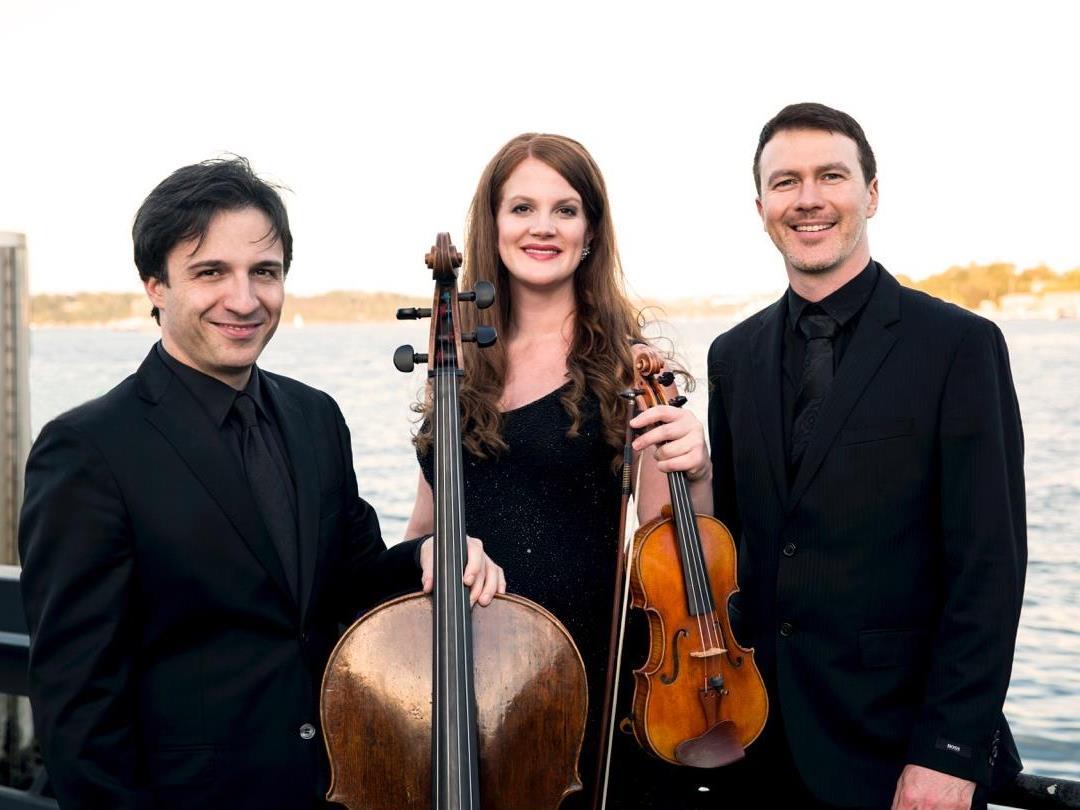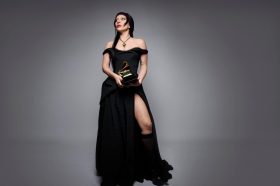Image via www.streetontrio.com
Formed in Geneva in 2008 and having an impressive international presence ever since, the Streeton Trio has been heard too infrequently in Melbourne, the home of its namesake artist. This year’s performance schedule of two dozen or so concerts and a European tour testify to the ensemble’s growing popularity, supported by excellent publicity and marketing. Following this performance, the Streeton Trio embarks on a tour of New Zealand. Described in the ensemble’s biography by Musica Viva as ‘Australia’s most internationally successful piano trio’, it was therefore disappointing news to hear from violinist Emma Jardine at the outset that after four years of performances at the Melbourne Recital Centre this would be their last. For this performance regular cellist Umberto Clerici was indisposed and at very short notice Meta Weiss, senior lecturer in cello at the Queensland Conservatorium of Music, stepped in to not only save the day, but also the forthcoming New Zealand tour. This achievement, bringing seven trios into repertoire in very little time, should not be underestimated.
Camille Saint-Saëns’s second piano trio in E minor, Op 92 composed in 1892 is a large-scale Romantic work in five movements. If not the finest achievement in the form, it is certainly a tour de force for piano. The composer was a famously gifted organist and pianist; his technical abilities are clearly demonstrated in the outer movements, the first Allegro non troppo brooding and Brahmsian in style, and the last contrapuntal and fugal. But I could not help feeling that the central three movements might have better served as a bracket of decorative, light-weight drawing room pieces. The performance was well understood and expertly played particularly by pianist Benjamin Kopp whose technique demonstrates perfect weighting and articulation, though the piano’s expansive writing needed a larger space than this auditorium.
Felix Mendelssohn’s second work in the form in C minor, Op 66 is far more convincing and consistent. The opening Allegro energico e con fuoco could have had more of a sense of kinetic energy, though it certainly revealed plenty of fire and focus. The sweet simplicity of the Andante espressivo was touchingly conveyed with poetic grace, and the notoriously difficult Scherzo: Molto allegro quasi presto was outstanding if not yet breathtaking. The spinnaker was set for the final gusty movement Allegro appassionato with its spiritual benediction provided via a quoted chorale from Calvin’s Geneva Psalter. Mendelssohn also wrote brilliantly for keyboard, so this was not an easy program for Kopp by any means. In his informative introduction to the work, Kopp referred to the work’s “unreasonable difficulties”. He would certainly have been aided by a page turner.
This was a first-rate performance by a fine young ensemble. I mention once again the extraordinary achievement by Meta Weiss stepping in at such short notice. Her playing was seamlessly integrated into the combined voice of the ensemble with intonation and sound finely judged and matched throughout.
Rating: 4 stars out of 5
Streeton Trio
Salon, Melbourne Recital Centre
1 October 2016




